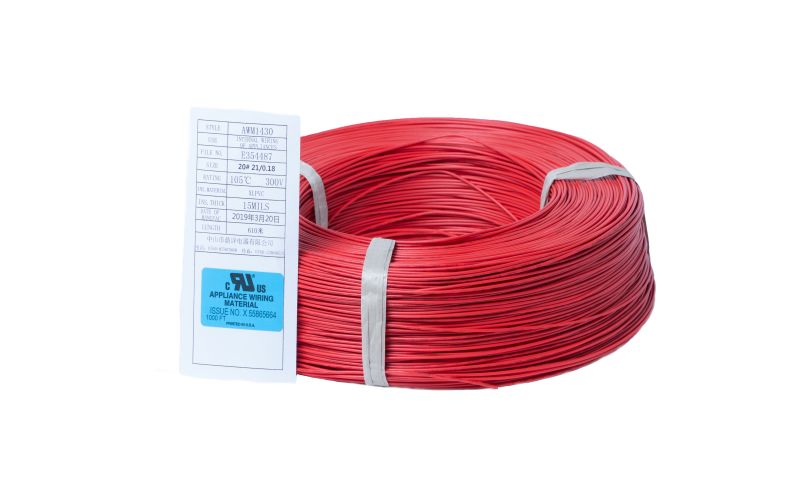Teflon high temperature cable, scientifically known as Polytetrafluoroethylene (PTFE), is a polymer material renowned for its exceptional high-temperature resistance.
High Melting Point: Teflon has a melting point of approximately 327°C (621°F), which is the temperature at which it begins to soften and potentially melt.
Continuous Operating Temperature Range: Teflon wire can be continuously used at temperatures around 260°C (500°F) without losing its properties. This makes it an outstanding material for various high-temperature applications.
Short-Term High-Temperature Resistance: While Teflon’s continuous operating temperature is around 260°C, it can briefly withstand higher temperatures. For instance, it can endure temperatures exceeding 300°C in short bursts. However, the use of ptfe teflon wire at different temperatures may release some gases. For more information, refer to previous articles discussing the gases produced by PTFE at different temperatures and whether they are toxic. The performance of ptfe teflon wire may vary under different conditions, so it is essential to assess whether its high-temperature resistance meets the specific requirements in engineering applications.

Teflon Properties:
Non-Stick Surface: Teflon high temperature cable is well-known for its non-stick properties, meaning it barely adheres to other materials. This makes it an ideal choice for manufacturing non-stick cookware and baking utensils. It is also used for coating pipes and containers to prevent substances from sticking and clogging.
High-Temperature Stability: With a melting point of around 327°C (621°F), Teflon can be continuously used at temperatures around 260°C (500°F) without decomposing or losing its performance. This gives it excellent stability in high-temperature environments.
Chemical Corrosion Resistance: Teflon high temperature cable exhibits outstanding resistance to many chemicals, including acids, bases, solvents, and numerous organic compounds. This makes it widely applicable in the chemical industry and laboratories.
Electrical Insulation: Teflon is an excellent electrical insulator, making it suitable for electrical applications that require isolation and insulation.
Low Friction Coefficient: Teflon high temperature cable has an extremely low friction coefficient, which makes it a valuable lubricant in mechanical components and bearings. This property helps reduce energy loss and prolongs the lifespan of parts.
Low-Temperature Performance: Teflon high temperature cable retains its properties even at extremely low temperatures, making it suitable for low-temperature applications.
Biocompatibility: Teflon has good biocompatibility and is unlikely to cause allergic reactions, making it suitable for use in some medical devices and food processing equipment.
Density and Electrical Properties: Teflon wire has a density of 2.16-2.20 g/cm³, a volume resistivity greater than 1×10¹⁸ Ω·cm, a surface resistivity greater than 2×10¹³ Ω, arc resistance greater than 165 seconds without electrical breakdown, and low water absorption with a water absorption rate of less than 0.1%.


